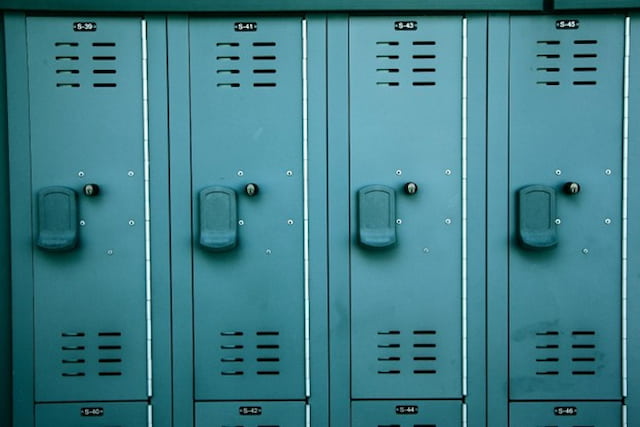When it comes to choosing secure, organised storage in your workplace, lockers play a pivotal role. From keeping personal items safe to supporting flexible, tech-savvy environments, lockers improve efficiency and enhance trust.
Below, we explore seven essential types every business should consider, matched to various needs, spaces and styles.
1. Metal Lockers: Classic and Reliable for All Industries
Metal lockers are the dependable workhorse of the storage world. Typically made from powder-coated steel, they’re durable, cost-effective and easy to maintain.
With single-, double- or multi-tier configurations, they adapt well to schools, offices, warehouses, and factories.
Traditional metal lockers offer secure locking, ventilation slots, coat hooks, shelves, and even specialised “gear” versions with perforated doors ideal for sports or industrial gear.
For most businesses, metal lockers provide unbeatable value and resilience.
2. Plastic Lockers: Lightweight and Corrosion-Resistant
For wet environments like pools, outdoor facilities, or spas, plastic lockers shine.
Made from high-density polymers (e.g., ABS, HDPE), they resist rust, dampness, and chemicals, even outperforming steel in harsh conditions.
These lockers are low-maintenance, easy to clean, and come in bright colours that boost branding.
Choose standard or heavy-duty plastic models for settings such as gyms, aquatic centres, or outdoor employee bays.
3. Wooden Lockers: Premium Design for Elegant Interiors
Wood and laminate lockers bring a sense of warmth and sophistication.
Ideal for executive offices, country clubs, spas, and retail spaces, they offer a high-end aesthetic with the function of stylish storage. Options include designer particleboard, solid oak, or hybrid designs, often featuring open-access compartments, internal shelves, and elegant finishes.
They’re perfect where presentation matters, blending seamlessly with interiors.

4. Smart Lockers: Digital Solutions for Modern Workplaces
Smart lockers represent the future of secure, flexible storage.
Equipped with digital locks—including PIN, RFID, biometric, or mobile app access—these systems offer real-time audit trails, cloud management, and asset tracking.
Benefits include:
- Enhanced security and accountability;
- Increased productivity via streamlined check-in/check-out;
- Contactless and flexible usage;
- Space-saving and configurable layouts.
They’re ideal for offices, educational settings, healthcare, logistics, and hotels, especially where package management, shared-desk environments, or tool control are key.
5. Modular Lockers: Flexible Configurations for Evolving Needs
Modular lockers offer adaptability. Businesses can customise frames to suit any space, add or remove units, or combine different door sizes and functions. Many systems also include integrated charging points, data ports and smart sensors.
This flexibility is especially valuable where storage needs vary over time—think co-working spaces, pop-up events, or growing workplaces. They allow businesses to scale or reconfigure without replacing entire locker banks.
6. Ventilated Lockers: Ideal for Gyms, Schools, and Factories
Ventilated lockers feature perforated or louvred doors to allow airflow, which is essential for damp or odour-prone items, such as sports gear, uniforms, or PPE.
Common in gyms, schools, factories and emergency stations, these lockers help reduce the build-up of unpleasant smells and improve hygiene.
Many models are also available in stainless steel or ventilated mesh styles, making them suitable for heavy-duty environments.
7. Custom Lockers: Personalised Solutions for Branding and Functionality
Custom lockers offer a design-led approach, ideal if you want lockers that reflect your brand identity or meet unique operational needs.
You can pick the material, colour, finish, locking system, door style, logo placement, even built-in benches or electronic features.
Whether you require gear-specific compartments, coin-operated day-use units, or signature finishes, custom options help create a polished, on-brand experience that works as hard as your business.
Choosing the Right Locker for Your Business
1. Start With Your Purpose
Identify what needs to be stored—staff belongings, equipment, deliveries, uniforms—and in what environment.
2. Consider Materials
Metal for general use, plastic for moisture resistance, wood for aesthetics, and stainless or ventilated steel for durability.
3. Decide on Features
Do you need digital locking, airflow, custom branding, integrated technology, or reconfigurable layouts?
4. Size It Right
Use space wisely—standard single-tier lockers are approximately 180 cm high, while multi-tier and mini-lockers save floor space.
5. Plan for Maintenance
Metal and plastic are low-care; wood may require more upkeep. Clean or smart locker systems require occasional software checks.
6. Align with Style and Budget
Ensure your lockers enhance rather than detract from your space. High-end wood or digital units cost more but deliver value over time.
Final Thoughts
From classic metal designs to futuristic smart systems and premium wooden finishes, there’s a locker to suit every business need.
Whether it’s a stylish office, a bustling gym, a flexible co-working space, or a high-security site, selecting the right kind of lockers means better organisation, smarter space use, and a welcoming experience for users.
Match your choice to your industry, environment and future needs, and you’ll be investing in functionality and flair that lasts.

